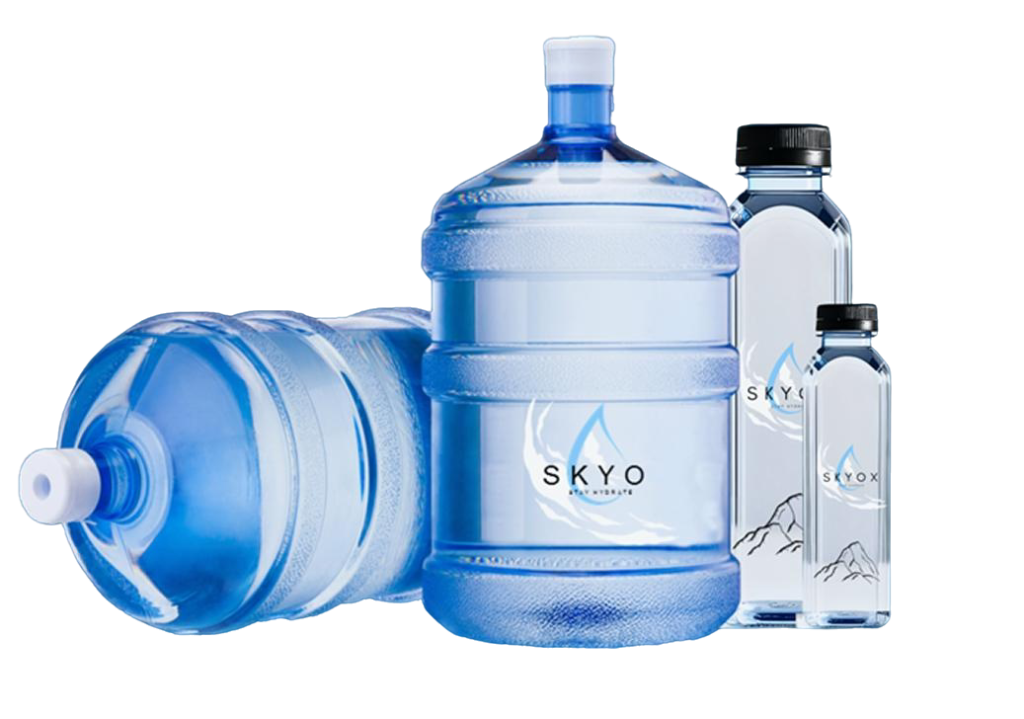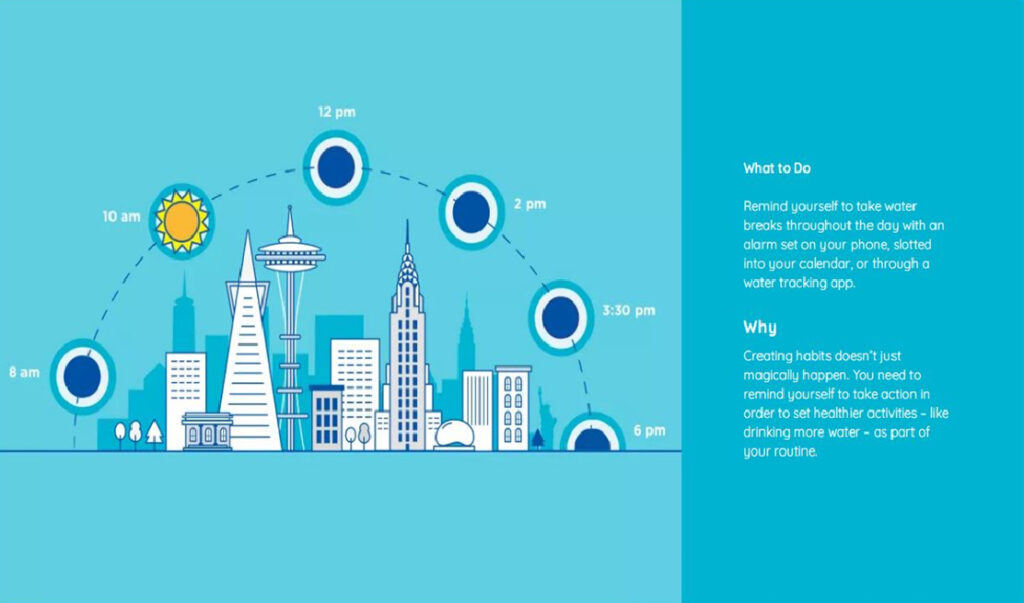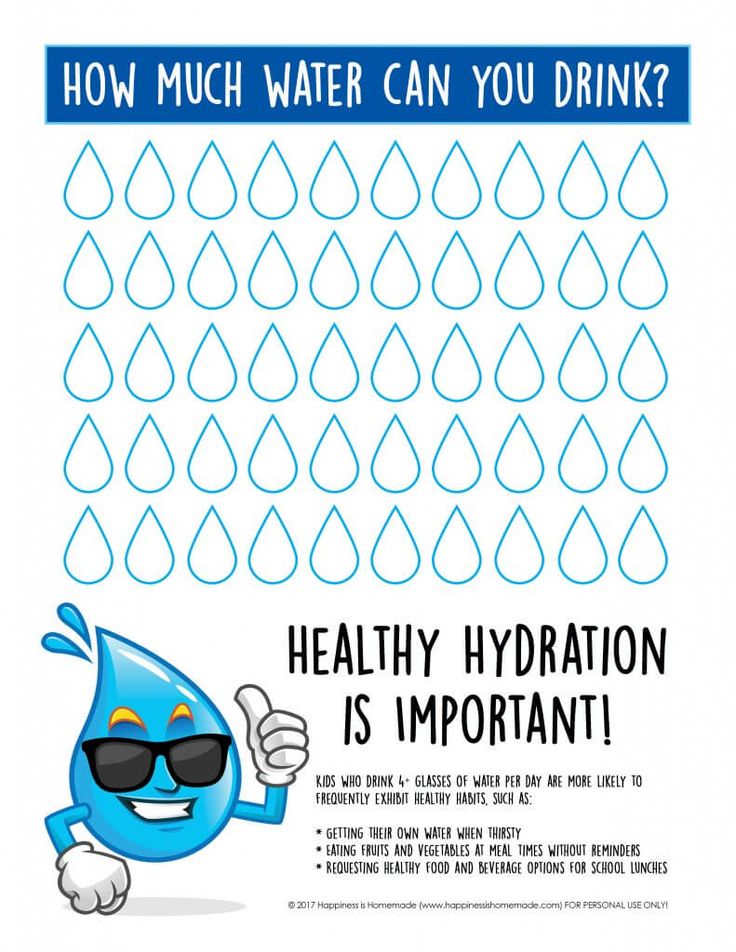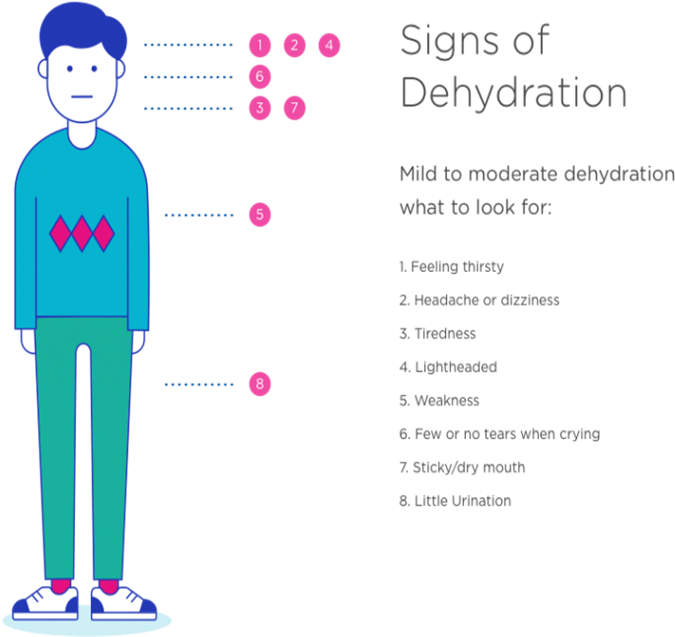
Get Free Delivery
0333-1500036
Healthy Hydration
Am I drinking enough water?

Life gets busy, doesn’t it? With rushed mornings, work, and after-school activities, it’s easy to forget to drink enough water. No worries! Here are some simple tips to help you and your family stay hydrated.

Why water is important for kids?

They have more skin in the game
Children have higher water needs compared to adults because their bodies contain a greater percentage of water (65% vs. 60%). Babies, in particular, have the highest water content at birth, around 78%. By the time they reach one year of age, this percentage decreases to about 65%. This higher proportion of body water means they have a larger surface area relative to their volume, making them more prone to water loss through their skin.

It’s not top of mind
Getting kids to stay hydrated is a two-part challenge—first, reminding them to drink, and then actually getting them to do it (and let's face it, convincing a toddler is no easy task!). Try using a water chart to turn hydration into a fun challenge, with rewards like stickers for every sip. You can also make drinking more exciting by offering bottled water that’s designed just for kids—bright, fun, and made just for them!

They can’t stop, won’t stop
Kids are always on the go—between cricket practice, swimming lessons, and football training. While you might be spending your Saturday mornings at games or practices, your kids are losing water every time they sweat, breathe, or even use the restroom. The key to staying hydrated is simple: make sure to replenish the water lost throughout the day to keep them energized and performing at their best.
Show them how it's done

Carry It:
Always have a bottle of water handy

Drink It:
Choose water over other beverages

Share it:
Have an extra bottle or two on hand for your kids
Parents might shy away from giving their kids sweetened drinks, but when they lead by example, it sends a much stronger and more lasting message. Kids are more likely to adopt healthy habits when they see their parents making those choices first.
Dodging Dehydration
Dehydration happens when the body doesn’t have enough fluids to function properly. If left untreated, it can worsen and lead to serious health issues. The good news is that severe dehydration is fairly uncommon. Still, it’s crucial to recognize the signs and symptoms across all stages—mild, moderate, and severe—so you can take action before it becomes a bigger problem.
What are the Symptoms of Dehydration?
Infants, young children and the elderly are especially susceptible to dehydration. But anyone, regardless of age, can find themselves wondering if they’re dehydrated. See the chart for the common symptoms of mild to moderate dehydration.
What can you do to avoid dehydration?
Being aware of the risk is half the battle. Drink water throughout the day, remembering to start hydrated and stay hydrated. Be sure to replenish fluids that are lost more rapidly in warm weather or as a result of strenuous exercise and excess perspiration.
When to Worry
If you or anyone in your care has very dark yellow or amber urine, not urinating at all, sunken eyes, extreme thirst and fussiness, sleepiness, listlessness, confusion, is unconscious or delirious, call your doctor immediately.


About Us
SKYOX Drinking water gives five steps of water purification. Promising quality and ensuring the latest technology and serving the water with labelled bottles with trust and honesty.
Useful Links
Contact Us
-
Joori Rajgan Sangjani near sector B-17
Islamabad - (+92) 333-1500036
- skyoxwatercompany@gmail.com
- Monday-Saturday: 9am to 5pm Sunday: Closed